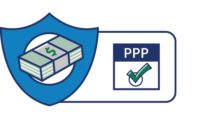Business owners received very favorable tax treatment from the federal government for their PPP (Paycheck Protection Program) loans. Those who received the loans and then had them forgiven, which includes many HVAC contractors, are able to avoid taxes on the forgiven loans and deduct the expenses paid for with PPP money. Some states have been less generous, a situation that creates extra tax issues and could cost businesses money.
Most states are following the lead of the federal government and not taxing forgiven PPP loans. In addition, almost all states are allowing businesses to deduct all the expenses paid for with PPP money. There are a few states that are either placing limits on exemptions and deductions. Five states are still including forgiven PPP loans in tax calculations. A couple of states have no applicable taxes. Some of the states forgoing taxes on the loans aren’t allowing the deductions, and other states that allow the deductions are taxing the forgiven loans.
Still other states make it even more complicated. Vermont will not tax PPP loans forgiven in 2020, but so far will tax those forgiven in 2021. Massachusetts at first only exempted the forgiven loans from corporate income tax, but not individual income tax. The state recently expanded the law to cover both types of income tax. Ohio allows PPP-funded business expenses to be deducted from personal income tax, but not commercial activity tax.
California placed a rule on its expense deductions that could have a negative effect on business such as HVAC contractors that received PPP loans but then saw a string recovery in business. The state only allows deductions of PPP-paid expenses if a business experienced a 25% year-over-year decline in gross receipts in 2020. Virginia capped expense deductions at $100,000.
Some states have gross receipt taxes (GRT) that are different from an income tax. Texas uses such a tax, called the state franchise tax. The state recently announced it would exempt forgiven loans from the total revenues used to compute the tax. Nevada also uses a GRT and so far will include forgiven PPP loans in its calculations.
What kinds of taxes a state levies makes a difference, said Sara Holland, a tax attorney and partner with Lewis Brisbois. Florida only levies a state income tax on C corporations. As a result, the state so far plans on taxing forgiven PPP loans.
Business groups are pushing all states to conform to the federal standard of not taxing forgiven PPP loans. Until there’s a change, Holland said businesses should continue to pay estimated quarterly taxes at the effective rate and act as if the law will stay that way. She said having different rules creates a difficult situation.
“It’s very challenging to report business earnings and tax filings in such different ways for one business at the federal level and at the state level,” Holland said. “Most times, businesses don’t have to treat the same tax attribute in different ways at the federal and the state level.”
If the tax law does change, business owners can file for a refund. Holland recommends regularly checking the COVID-19 section available on every state department of revenue website.
“There will be pressure to make sure they are responsive to those tax refund claims as they come in and not cause undo delay,” Holland said.
One alternative solution to this issue would be for the states to clarify the tax treatment prior to the filing deadline. Holland said if this doesn’t happen, there will be a lot of amended tax returns. This creates more work for both the businesses and the states.
“That’s something nobody wants to see happen,” she said.











